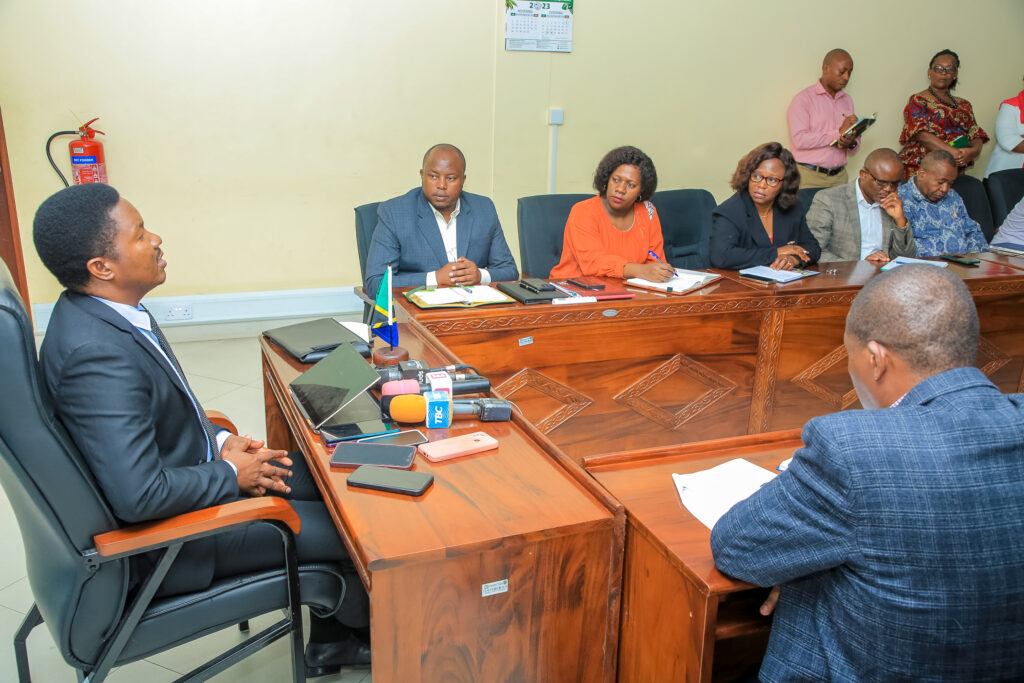Dar es Salaam. The minister listed eleven key takeaways by nation following the conclusion of the 28th Conference of Member States of the United Nations Convention on Climate Change (UNFCCC-COP28), which took place in Dubai, United Arab Emirates (UAE), on December 13, 2023.
Minister of State in the Vice President’s Office (Union and Environment) Selemani Jafo outlines that the meeting agreed on the Global Goal for Adaptation (GGA), the loss and damage fund that goes with the initial pledge of almost $700 million (Sh1.75 trillion).
“We have also seen a confident trend on the Green Climate Fund, which receives $12.8 billion (Sh32 trillion), transformative carbon markets, information transfer, technology sharing, youth involvement, and programs to reduce greenhouse emissions,” he said.
The minister says the key issues have given direction for the country to deal with climate change, and he is optimistic that the commitment from the developed economies will smooth the directives.
Jafo refers to the President, Samia Suluhu Hassan, who, during the high-level meeting, stressed the commitment of developed countries to provide funds for climate financing as agreed. The pledge to provide funds of 100 billion US dollars (Sh250 trillion) was made at COP15 in 2009.
“In Copenhagen, we committed $100 billion annually for climate action. So far, less than required. It is still not forthcoming. In Paris, we resolve to keep warming below 1.5 degrees Celsius until 2030. However, the current rate of warming is alarming. It must be saved,” said President Samia.
The President went on to say that not doing so undermines international confidence.

NDCs review
The environment minister says following the directives by the Executive Secretary of UN Climate Change, Simon Stiell, who reminded the countries to submit their Nationally Determined Contributions (NDCs) by early 2024, they
“This means COP28 must be a clear turning point. Governments must not only agree on what stronger climate actions will be taken but also start showing exactly how to deliver them, said Stiell in one of the meetings in Dubai.
Jafo says Tanzania’s 2021 NDCs, which were designed to be implemented for five years to 2026, will be reviewed.
“Strategic projects like the Standard Gauge Railway (SGR) that will use 100 percent electricity, the Julius Nyerere Hydropower Project (JNHP), which will add the country’s share of renewable sources of electricity, and the Rapid Bus Projects are among the country’s projects on NDCs,” he said.
Other projects included are the Green Agriculture Reform, which emphasizes more irrigation, and the Africa Women Clean Cooking Support Programme (AWCCSP), which were both presented by the president at the summit side event.
On the carbon market, Jafo noted that “the country is inviting projects in waste management because the country produces a lot of waste that can be used as energy. Waste produces methane, which is more powerful than carbon, but it can be used as energy.”.
According to the minister, the Tanzania pavilion at the COP28 was visited by at least 4,700 people, compared with 3,000 at the previous summit in Sharm el-Sheikh, Egypt. The coming COP29 will be held in Azerbaijan.
This story was produced with support from MESHA and the IDRC Eastern and Southern Africa office.



Thanks for sharing. I read many of your blog posts, cool, your blog is very good.